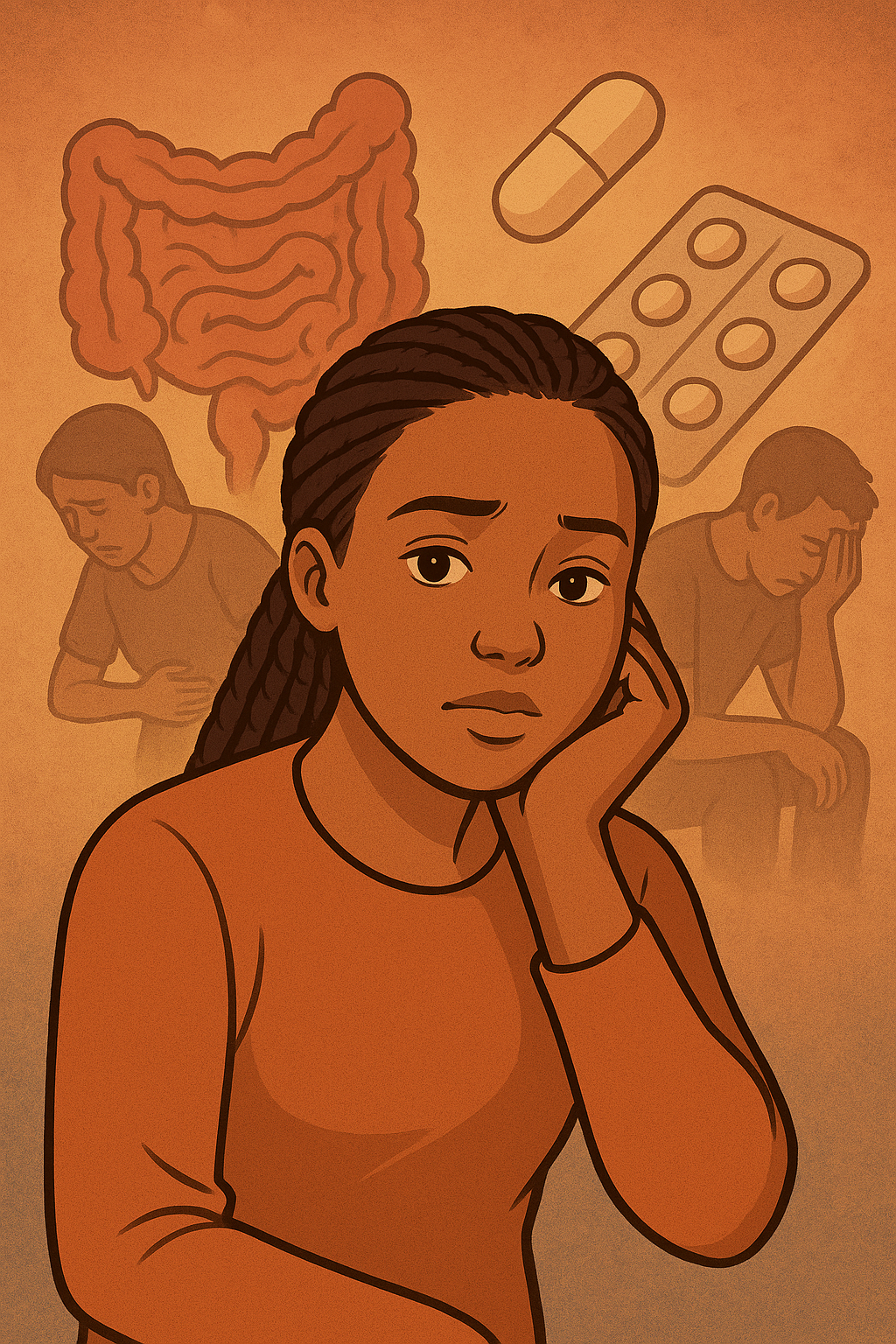The Hidden Struggle: Medication Access and Equality for IBD Patients
by Beamlak Alebel (Addis Ababa, Ethiopia)
Treatment is more than a diagnosis or a prescription — it’s about whether the medicine you need is available, affordable, and within reach. For many IBD patients, that uncertainty becomes a heavy burden. It’s hard to stay strong when your survival depends on something you might not find or afford tomorrow.
For me, the struggle is deeply personal. Every month, when it’s time to get my medication, I feel both guilt and sadness. I can’t ignore the heavy burden it places on my family. Watching my parents worry about how to afford my treatment hurts more than the illness itself, especially since the medicine is rarely available in public hospitals. Even though they never complain and always care for my feelings, I can see the stress in their eyes — the quiet fear of what might happen if one day the medicine becomes too expensive or unavailable. It’s painful to live knowing that your survival is also your family’s financial struggle. I wish the medicine could at least be less expensive and easily accessible everywhere, so no one would have to choose between health and hardship.
The world has powerful medicines with great potency — but what is the use of their strength if only a few can afford them? True progress in healthcare means making effective treatments available and affordable for everyone, not just for those who can pay the high price.
Access to medication is not a privilege; it is a lifeline. Yet in many places, that lifeline is fragile. I have seen patients lose hope — not because their illness defeated them, but because the system failed them. Seeing people treated as if their lives are less valuable simply because they are sick is one of the deepest pains a person can feel. It makes you question your worth. It makes you feel invisible.
But we are not invisible. We are fighters, dreamers, and survivors. Our illnesses may have changed our bodies, but they have not taken away our strength or our right to be seen, respected, and included.
Equality should not only exist in words or promises. It must exist in action — in how policies are written, in how medications are distributed, and in how people with chronic illnesses and disabilities are treated. I know how it feels to be looked at differently, to be judged for something beyond your control. What we have is an illness, not a choice.
Even in schools and health-related fields, there are times when lecturers or professionals do not fully understand what it means to live with a chronic condition. They see our physical state but not the strength it takes to show up, to keep learning, and to keep fighting. Being judged for taking sick leave or missing class because of health reasons can make a person lose hope. For now, we keep silent — but one day, we may speak as a volcano when the time comes. Because silence does not mean weakness; it means patience, and patience has power.
I dream of a world where no one loses hope because of a lack of medicine or misunderstanding — where being different is not a reason for exclusion, and where compassion leads policy and practice. Modern research is advancing, but true progress will come when every patient, everywhere, is valued equally — when access to care and empathy become rights, not struggles.
Advocacy is how we get there. By speaking up, sharing our stories, and reminding the world that every life matters, we turn our pain into purpose. Because in the end, access to medication and equality are not just medical or social issues — they are matters of dignity, compassion, and humanity.
Everything will change one day — the policies, the systems, and the hearts of people. Until then, we keep raising our voices, believing that our struggles today can open doors for those who come after us.

